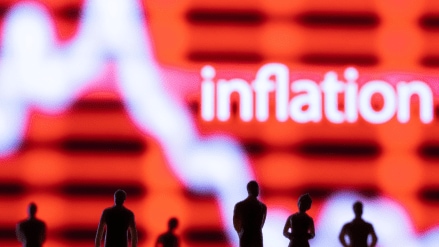By TV Mohandas Pai & Siddarth Pai
Inflation is a silent, ecumenical tax which robs the purchasing power of citizens while inflating costs. It has brought down governments and destroyed economies. Protecting citizens from the ravages of inflation is the primary objective of central bankers and governments across the world.
History of CII and capital gains tax in India
To protect against inflation, the Indian government introduced the Cost Inflation Index (CII), which is derived as 75% of the average increase in the urban Consumer Price Index for the previous year. Indexation accounts for inflation by increasing the historic acquisition cost to its current purchasing power, normalising the effect of inflation during long-term capital gains (LTCG) computation. Other sources of income, being yearly, do not enjoy indexation.
Taxation is on revenue, not capital. Capital gains is unique as it’s a tax on capital receipts. India’s tryst with LTCG taxation began in the 1946-47 financial year to curb the speculative investments in the post-World War II high inflationary environment. It was removed in two years but reintroduced in 1956 based on the recommendation of professor Nicholas Kaldor. Since then, it has been constantly tweaked to balance out incentivising investments while augmenting government revenues. Indexation came out in the 1991-92 Chelliah Committee report, which clearly highlighted the erosion of purchasing power due to inflation. This resulted in the introduction of Section 48 of the Income Tax Act, 1961, which provided for the CII.
Thus the removal of indexation, a shield against the ravages of inflation, has soured Indian taxpayers. This removal comes in the wake of a 37.5% reduction in the LTCG tax rate from 20% to 12.5%. But the balance of this requires greater examination.
Cost Inflation Index removal vs change in LTCG tax rates
A comparison of the old and new LTCG tax regimes shows gains made in excess of 11% compound annual growth rate (CAGR) on average over a 24-year period makes the new regime more beneficial. This will change depending on the holding period. The average inflation as per CPI is 4.99% from April 1, 2014, to April 1, 2024.
Impact on house property investments
An analysis of the Reserve Bank of India’s all-India house price index (HPI) from its database on Indian economy shows that for a 10-year period (see chart), the average CAGR of housing prices in the country grew at 3.78%. For housing investors to benefit from the new LTCG regime, they should have got a rate of return of over 10%, or a return on investment of at least 2.5. None of the cities mentioned in the HPI boast of such returns.
Impact on gold investors
Gold has been the preferred investment avenue for Indian households, along with fixed deposits and real estate. An analysis of the average gold prices for 10 grams between 2014 and 2024 shows a mere 6.99% CAGR. This is below the over 10% required for the new regime to be beneficial.
Impact on unlisted equity investors
Investors in unlisted equities in India have always suffered prejudiced treatment. Their investments in unlisted entities attracted angel tax and they suffered a tax rate that was 2.48 times that of their listed counterparts. Budget 2024 normalised this by removing angel tax and placing listed and unlisted equity LTCG taxation on a par.
As unlisted security data is not published, a good proxy is the data submitted by the Securities and Exchange Board of India regulated alternative investment funds (AIFs) for their performance benchmarks. The September 30, 2023, benchmark by CRISIL for CAT I AIFs (including venture capital) shows that the nine-year average returns for this is 19.61%. While they may suffer due to the indexation benefits on losses being removed, unlisted equity investors may be the largest beneficiary of the new LTCG regime.
Asset class comparison
Although best poised to benefit from the new LTCG regime, unlisted equity investors are a minority and the revenue lost pales in comparison to the other asset classes. To ensure widespread benefit, the government should look at grandfathering the indexed value of all capital assets liable to indexation up to April 1, 2024. This is similar to the grandfathering in 2018 when listed equity LTCG tax rate was increased to 10%. The government grandfathered the value up to January 31, 2018, as the cost of acquisition. This move will benefit most taxpayers without materially affecting government revenues. This is also in line with the government’s previous stance on such a matter.
TV Mohandas Pai, Chairman, and Siddarth Pai, Partner, CFO, and ESG Officer at 3one4 Capital, respectively.
Disclaimer: Views expressed are personal and do not reflect the official position or policy of FinancialExpress.com Reproducing this content without permission is prohibited.
